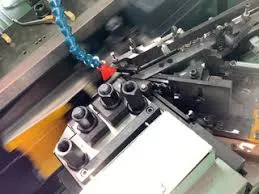
-
 Afrikaans
Afrikaans -
 Albanian
Albanian -
 Amharic
Amharic -
 Arabic
Arabic -
 Armenian
Armenian -
 Azerbaijani
Azerbaijani -
 Basque
Basque -
 Belarusian
Belarusian -
 Bengali
Bengali -
 Bosnian
Bosnian -
 Bulgarian
Bulgarian -
 Catalan
Catalan -
 Cebuano
Cebuano -
 Corsican
Corsican -
 Croatian
Croatian -
 Czech
Czech -
 Danish
Danish -
 Dutch
Dutch -
 English
English -
 Esperanto
Esperanto -
 Estonian
Estonian -
 Finnish
Finnish -
 French
French -
 Frisian
Frisian -
 Galician
Galician -
 Georgian
Georgian -
 German
German -
 Greek
Greek -
 Gujarati
Gujarati -
 Haitian Creole
Haitian Creole -
 hausa
hausa -
 hawaiian
hawaiian -
 Hebrew
Hebrew -
 Hindi
Hindi -
 Miao
Miao -
 Hungarian
Hungarian -
 Icelandic
Icelandic -
 igbo
igbo -
 Indonesian
Indonesian -
 irish
irish -
 Italian
Italian -
 Japanese
Japanese -
 Javanese
Javanese -
 Kannada
Kannada -
 kazakh
kazakh -
 Khmer
Khmer -
 Rwandese
Rwandese -
 Korean
Korean -
 Kurdish
Kurdish -
 Kyrgyz
Kyrgyz -
 Lao
Lao -
 Latin
Latin -
 Latvian
Latvian -
 Lithuanian
Lithuanian -
 Luxembourgish
Luxembourgish -
 Macedonian
Macedonian -
 Malgashi
Malgashi -
 Malay
Malay -
 Malayalam
Malayalam -
 Maltese
Maltese -
 Maori
Maori -
 Marathi
Marathi -
 Mongolian
Mongolian -
 Myanmar
Myanmar -
 Nepali
Nepali -
 Norwegian
Norwegian -
 Norwegian
Norwegian -
 Occitan
Occitan -
 Pashto
Pashto -
 Persian
Persian -
 Polish
Polish -
 Portuguese
Portuguese -
 Punjabi
Punjabi -
 Romanian
Romanian -
 Russian
Russian -
 Samoan
Samoan -
 Scottish Gaelic
Scottish Gaelic -
 Serbian
Serbian -
 Sesotho
Sesotho -
 Shona
Shona -
 Sindhi
Sindhi -
 Sinhala
Sinhala -
 Slovak
Slovak -
 Slovenian
Slovenian -
 Somali
Somali -
 Spanish
Spanish -
 Sundanese
Sundanese -
 Swahili
Swahili -
 Swedish
Swedish -
 Tagalog
Tagalog -
 Tajik
Tajik -
 Tamil
Tamil -
 Tatar
Tatar -
 Telugu
Telugu -
 Thai
Thai -
 Turkish
Turkish -
 Turkmen
Turkmen -
 Ukrainian
Ukrainian -
 Urdu
Urdu -
 Uighur
Uighur -
 Uzbek
Uzbek -
 Vietnamese
Vietnamese -
 Welsh
Welsh -
 Bantu
Bantu -
 Yiddish
Yiddish -
 Yoruba
Yoruba -
 Zulu
Zulu
Exploring the Operations of Thread Rolling Machines in Modern Manufacturing Facilities and Their Impact
The Role of Thread Rolling Machines in Modern Factories
In the contemporary manufacturing landscape, efficiency and precision are the cornerstones of successful production processes. Among the myriad of machines employed within factories, thread rolling machines play a vital role in the production of high-quality fasteners and various industrial components. These machines utilize a unique cold-forming process that provides significant advantages over traditional machining methods.
Understanding Thread Rolling
Thread rolling is a method used to create threads on cylindrical workpieces through the application of pressure. The process involves taking a blank piece of metal and deforming it into the desired shape without removing material, which is a hallmark of cold forming. This method not only enhances the physical properties of the material but also allows for tighter tolerances and smoother finishes compared to conventional machining techniques.
Thread rolling machines operate by feeding a blank into a pair of hardened rollers. As these rollers rotate and apply force, they impress threads onto the surface of the metal. The result is a robust and durable product that meets strict industry standards. This process can be applied to various materials, including steel, aluminum, and brass, making it versatile for different applications.
Advantages of Thread Rolling Machines
1. Increased Strength and Durability The cold working process increases the material's tensile strength due to strain hardening, making rolled threads significantly stronger than cut threads.
2. Dimensional Accuracy Thread rolling machines offer exceptional dimensional accuracy and consistency. This precision reduces the likelihood of defects and ensures that components fit together perfectly during assembly.
3. Cost Efficiency While the initial investment in thread rolling machinery can be considerable, the long-term savings are substantial. The high throughput and the reduction in material waste contribute to lower per-unit costs.
thread rolling machine working factory

4. Environmentally Friendly Thread rolling is a more sustainable manufacturing option since it produces less scrap and utilizes energy more efficiently compared to traditional cutting methods.
Applications of Thread Rolling Machines
Thread rolling machines are utilized across various industries, including automotive, aerospace, and construction. In the automotive sector, they are commonly used to produce bolts, screws, and studs that are essential for vehicle assembly. The aerospace industry relies on these machines to manufacture lightweight yet strong fasteners that comply with stringent safety standards.
In construction, thread-rolled components are integral to ensuring the structural integrity of buildings and infrastructure. The ability to create high-quality threads rapidly and reliably makes thread rolling machines indispensable in today's fast-paced manufacturing environments.
The Future of Thread Rolling Technology
As technology continues to evolve, so too do the capabilities of thread rolling machines. Advanced automation, such as robotic feeding systems and AI-driven quality control, is being integrated into these machines to further enhance productivity and reduce human error. Additionally, innovations in materials science are expanding the range of substrates that can be effectively processed, opening new avenues for application across diverse industries.
Conclusion
In summary, thread rolling machines are a cornerstone of modern manufacturing, providing strength, precision, and efficiency for producing threaded components. Their impact is felt across multiple sectors, underscoring the importance of investing in advanced machinery to meet the demands of today's marketplace. As industries continue to evolve, the role of thread rolling technology will undoubtedly become even more prominent, driving further innovations in manufacturing processes.
